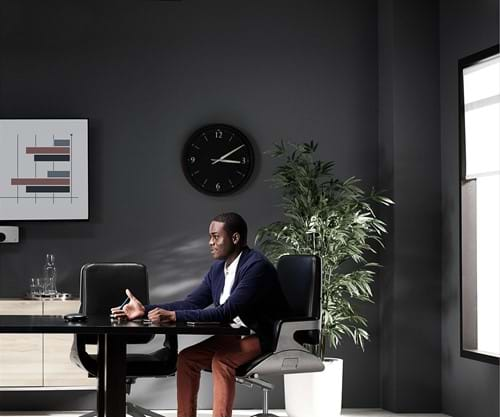Ramping Up Audio Quality to Ensure Business Resilience

The focus in recent months has understandably been on simply ‘keeping going’. Quickly installed remote collaboration tools have connected employees working from home with each and with their office-based colleagues. For some, this has been a matter of survival. Now, however, the focus is turning to business resilience.
Felix Alpstaeg, Sr. Manager Market Development, at Shure explains: “Resilience is about the ability to bounce back. To secure revenue streams not just for today, but for the longer term.”
He cites the education sector as having recognized the value of investing in great AV conferencing solutions to support this resilience. This is especially the case among the private colleges and universities depending on fee-paying students.
Delivering Remote Learning Excellence
“As the first wave of COVID-19 lockdowns hit, students studying at international education centers headed for home,” Felix continues. “But these private business schools and other academic institutions still needed to deliver learning excellence. After all, many of their students (often mature business professionals) had paid a lot of money for their courses.”
Suddenly, for those with outdated AV technology, there was a very real risk to revenue. Lecturers delivering classes to empty lecture halls for livestreaming to home-based students were using the standard USB mics they’d always used for in-room audibility. Sound quality was an issue.
Felix says: “We were being asked to recommend solutions that could be quickly installed, offered an immersive experience for both in-room and remote participants, and would be scalable for any future needs. In one case, we equipped 50 rooms on campus in a matter of days.
“Our tech also needed to interface to Teams and other collaboration platforms used by distributed student cohorts. And, with an eye to the future when face-to-face learning is back on the cards, touchless microphones were on the AV shopping list, so that students would be able to participate in lecturers without having to hold a mic.”
Corporate Resilience
The corporate world too has written a new shopping list when it comes to AV technology. Prior to the wholesale shift to a work-from-home model, a lot of businesses were not open to the idea of soft codec technology to facilitate collaboration. Such tech includes the likes of Zoom and Teams, offering the ability to conference from pretty much anywhere. Clearly, business and IT leaders have reconsidered their resistance as they look to a more resilient future built on a hybrid (at-home/in-office) workplace.
For Shure, this means more enquiries about solutions that interface with soft codec technology. Our vendor agnosticism in this respect means we can easily integrate with the collaboration platforms our customers’ employees are now using.
Felix points to another interesting change to the remote collaboration shopping list. “The small meeting rooms where attendees used to crowd around a central ‘spider’ telecoms unit to communicate with people working remotely are getting a facelift. The ‘spiders’ are being replaced with personal mics or array mics that can be wall or ceiling mounted to be touchless and to give flawless audio quality.”
Flawless audio
Whether in learning institutions or the corporate world, audio solutions have never been more important for their role in enabling business resilience. An Illuminas research report published in February this year bears this out.
Based on an independent survey of 400 enterprise IT and business professionals, the report states: “The future of the enterprise – and business more generally – will be dominated by virtual meetings. That future will remain a partially fulfilled dream unless we first lay a solid foundation of flawless audio to support all the time saving and cost-reducing advances organizations know that they need.
“Every current benefit and challenge of virtual meetings comes back to audio.” A point with which Felix concurs.
Find Out More
- Explore this recent interview on Hybrid Learning
- Learn more about Shure’s Audio Ecosystem for your business
- Or get in touch and a Shure expert will connect with you

Related Posts
It’s time to redefine the workplace
As the future of work continues to evolve, and the importance of communication and collaboration increases, reconfiguring collaboration spaces to build the right employee experience is now critical. IDC believes that investments to enhance hybrid meetings through audio quality can lead to tangible business outcomes.
IDC Video : Audio Issues with Hybrid Working Models
IDC Explores how quality audio can overcome the issues and consequences associated with hybrid working.